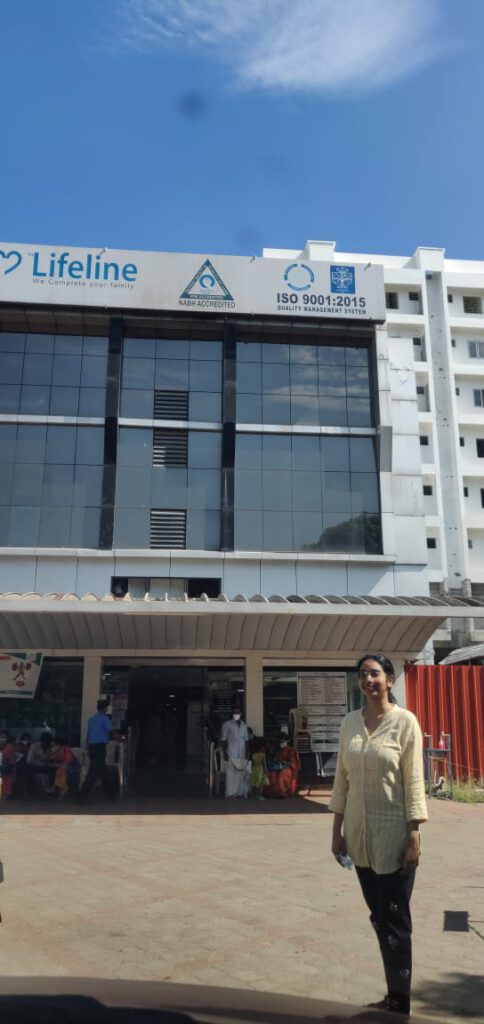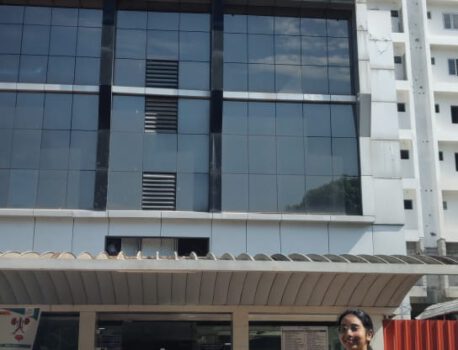I had never viewed myself as someone who would oppose the idea of Assisted Reproductive Technology (ART). I never knew enough about this topic to form solid opinions about it. I was in view that if people want to have their own biological children, they should have the right to do that.
In 2021, during lockdown, I joined a Harvard EdX course, “Bioethics: The Law, Medicine, and Ethics of Reproductive Technologies and Genetics”, which is narrated and lectured by Professor Cohen of Harvard University, Harvard School of Law.
I joined this course because this field of law is something which is overlooked at in my country. The laws pertaining to this field is hay-wire and it has a heavy black-market business. The second reason why I chose this course is because my parents had tried to conceive through IVF during the early 90s. this was a time when IVF was a start-up company. The chances of a successful IVF were between 3%-8%, yet the money was to be paid in lakhs. Their IVF treatments were not a success. I was, however, a miracle rainbow baby born through tradition conception.
I had many doubts regarding ART, so on 13/02/2022, my father arranged an interview for me with Dr. Prasannakumari. She is one of the top doctors of the ART field in India. She is a retired professor and is currently working at Lifeline Hospital.

I prepared a list of 10 questions as she is a busy person and I was allotted a time duration of 10 minutes to conduct my interview.
The summarized answers to my questions are as follows:
- There is a need for a fertility certificate from the couple, in this hospital to carry out ART
- Gestations surrogate mothers are used now as traditional surrogate mothers lead to many complications. The hospital follows The Surrogacy Bill, 2016 for the same.
- Mix-ups do not occur in this hospital. It is NEAC credited and due diligence is taken care of. But there are many unlicensed hospitals where such incidents may occur.
- There has only been one incident where the husband, after agreeing to accept sperm donation for his wife to conceive a baby, later on changed his mind and it ended up with their divorce and the pregnancy for the same had to be terminated.
- As of now, no legal claims over parental rights of donated gametes and for surrogacy have occurred.
- As of now, no couple have approached to conduct a DNA test for their child.
- 90% of the couples who approach this hospital are well-educated. Those who need extra support can seek the counselling provided by the hospital.
- There is no price regulation set by the government regarding price floor and price ceiling for IVF treatments.
- As of now, no couples have approached to seek about donor identity.
- The current success rate is 30%. This hospital provides that success rate. But there are many others which still have a success rate below 10%.
- A concession in price is provided to those from a weaker economic background.
- The hospital does not conduct IVF for people of the LGBTQIA+ community. Only married heterosexual couples are provided treatment.
After this interview, it came to me like a lightening shock that ART is nothing but a baby making industry, which for the high amounts paid, is essentially a scam with less success rates. There are many hospitals which can take advantage of people who cannot conceive and drill out money from them, in return, they are injected with a lot of hormones and depression.
Can we blame the couples too? It could be their need for having biologically related children itself that leads them to opt this path. Adoption is a huge stereotypical and controversial topic in India. The couples who undergo IVF are seen through sympathetic eyes. Their right to have biological children are always considered as the utmost important necessity.
But, how many of us truly think about the emotional plight of children born through IVF? Especially born through gamete donation or traditional surrogacy.
Many countries keep up the anonymity tag when it comes to gamete donation. This is done to protect the donor’s privacy.
But what about the children? What will happen when they grow up knowing about only half of their blood-line? There will be a point when the child questions about their roots of existence. They will be frustrated when the answers do not match up. They may develop insecurities and they may base their life’s mission to find out about the other half in order to achieve closure.
The parent(s) who choose to bring children into this world through gamete donations selfishly look only about their own life aspects, they do not think about the emotional frustration of the child they would bring into the world. When the parent(s) want a biologically related child, why is the need for the child to know its half biological relation denied?
The parents can easily look into adoption of an already existing child and provide it a life.
Now, what about the impact of ART on the environment? It is said that population is growing at a exponential rate yet, this baby producing industry is not banned. Child adoption is not encouraged. The stigmas of child adoption are let be.
When there are millions of children who go unadopted just because people prefer to undergo IVF to have a biological relation, it is the life of the adopted child that suffers as well as the child born through IVF.
Hence, in my point of view, any sort of Assisted Reproductive Technology should be banned. Adoption must be encouraged. An already existing life must be rescued instead of creating a new life. Just imagine, if this baby-production industry did not create the profit it creates now, wouldn’t the field of adoption be destigmatized? Wouldn’t more children who are in fosters have a permanent home? Many would even be rescued from abusive foster homes. It is something to think about.

